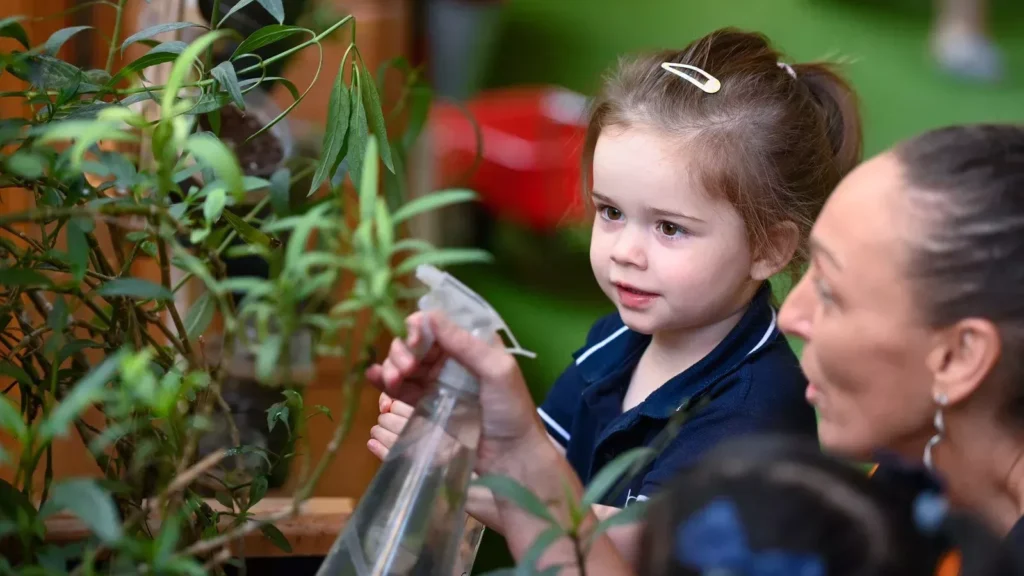In today’s tech-driven world, children are exposed to screens from a very young age. Whether it’s the TV at home, tablets, smartphones, or computers at school, screens have become an unavoidable part of children’s lives. While technology offers opportunities for learning and entertainment, experts caution that excessive screen time can have detrimental effects on a child’s development. Babilou Family, a renowned early childhood education provider, has compiled essential guidelines to help parents manage their children’s screen time and ensure it supports healthy growth. These expert-backed recommendations draw from global research, including studies from the World Health Organization (WHO) and UNICEF.
The Impact of Screen Time on Child Development
It’s no secret that children’s brains are rapidly developing, especially in the early years. During this period, babies and toddlers form up to a million neuronal connections per second. For this development to be optimal, children need constant, high-quality interactions with their caregivers. This “Serve and Return” interaction—where parents respond to their child’s actions or speech—is crucial for brain development. Unfortunately, screens, whether for watching TV or using apps, do not provide the same type of stimulating and responsive experience that children need during these critical stages of growth.
Excessive screen time can disrupt various developmental aspects, including language skills, social-emotional growth, and physical well-being. In fact, children exposed to too much screen time may show delayed language development, an increased risk of childhood obesity, and even strained eyesight, with childhood myopia becoming more prevalent. Additionally, children who spend hours on screens often suffer from disrupted sleep patterns and reduced physical activity, which further impacts their health.

Screen Time Recommendations for Children Aged 0-6
Babilou Family, a global leader in early childhood education, offers practical advice for parents looking to regulate their children’s screen time based on age. These guidelines are designed to help strike a balance, ensuring that screen time is used productively while also supporting a child’s physical, cognitive, and emotional development.
For Children Aged 0-3 Years
For babies under two years old, experts recommend avoiding screen time altogether. This is because young infants learn best through physical interaction with their caregivers, not through passive viewing of screens. For toddlers aged 2-3 years, screen time should be limited to no more than 30 minutes per day, and it should always be supervised. The key here is quality over quantity—co-viewing with a parent or caregiver is ideal. This allows the child to process the content with a trusted adult, making the experience more meaningful.

Sridevi Raghavan, Senior VP of Education, Quality, and Sustainability at Babilou Family, explains that it’s crucial to prioritize activities that encourage movement, interactive play, and real-world exploration, rather than passive screen consumption. “Screens should not replace physical activity or social interaction. Children need to engage with their environment to grow and thrive,” Raghavan advises.
For Children Aged 3-6 Years
As children approach preschool age, screen time can be gradually increased, but it should still be closely monitored. Experts recommend limiting screen time for preschoolers to no more than one hour per day. It’s important to choose appropriate content that is both age-appropriate and educational, such as short, simple cartoons that teach letters, numbers, or basic social skills. Interactive apps that promote problem-solving and creativity are also good options.
Parents are encouraged to set clear boundaries by creating screen time rituals. This helps children understand when screen time begins and ends, and sets expectations around device usage. “The goal is to ensure that screen time is structured and doesn’t encroach on other important activities such as family meals, physical play, or bedtime routines,” says Raghavan.
For Professionals in Early Childhood Education
Technology can also play a supportive role in early childhood education. Educators working with young children can use digital tools to enhance learning experiences, but they should do so sparingly. “Teachers should ensure that technology is used to complement hands-on learning activities,” explains May Zalat, Head of Education at The Blossom Nursery. “For example, coding and STEM activities can be introduced in an interactive way to enhance a child’s problem-solving skills.”
While screen time in the classroom can be beneficial, it should never replace the essential interactions that children need with their peers and teachers. Experts also emphasize the importance of teaching children about internet safety, including the dangers of cyberbullying and the importance of online privacy.
The Role of Parents in Regulating Screen Time
The responsibility of managing screen time lies heavily with parents, as they have the most influence over their child’s daily routines. One of the most effective strategies is setting limits early on and modeling healthy habits. For instance, parents can set the example by reducing their own screen time, especially during family meals or quality time together. “Children learn by example. If parents spend time reading books, playing outside, or engaging in other non-screen activities, children will likely follow suit,” explains Raghavan.
Parents should also be aware of the impact that background TV or devices can have on a child’s language development. Studies have shown that children exposed to background noise from screens, such as TVs left on during the day, hear significantly fewer words, which may impede language acquisition.
Expert Opinions on Reducing Screen Time
Faten El Hajj, a mother of two in Dubai, shares her experience with managing screen time for her teenage son, who has become increasingly dependent on digital devices. “It’s difficult to limit screen time when all his friends are online, but I’ve noticed that it’s affecting his mood and concentration,” says El Hajj. “We’ve started setting clear rules for screen use, and I’ve been encouraging him to spend more time doing outdoor activities and reading books.”
El Hajj’s story echoes a common concern among parents worldwide—how to find the balance between allowing children to enjoy digital devices and ensuring that they don’t overuse them in ways that could harm their health.
Collaborative Efforts for Better Screen Time Management
Brilliant Mhlanga, a professor of strategic communication and media at Abu Dhabi University, stresses the importance of collaboration between parents, schools, and government bodies to help mitigate the risks of excessive screen time. “Policies should be in place that educate both children and parents about the safe use of technology and the importance of balancing it with physical activity and real-world experiences,” Mhlanga suggests.
In addition to expert recommendations, there are several tools available to parents, such as screen time monitoring apps, that can help track and manage children’s usage. By being proactive and intentional, parents can ensure that their children benefit from digital devices without compromising their development.
Final Thoughts
As screens become increasingly ubiquitous in the lives of young children, it is crucial for parents and caregivers to regulate their use. The Babilou Family’s guidelines provide a valuable framework for managing screen time, emphasizing the importance of balance, supervision, and meaningful interaction. By following these recommendations, parents can help ensure that their children develop the skills they need to thrive in a world that is becoming ever more digital, while also safeguarding their mental and physical well-being.
For more information or to register your child, visit The Blossom Nursery.
About The Blossom Nursery & Babilou Family:
The Blossom Nursery, founded in 2009, offers quality early years education in the UAE, providing holistic development for children aged 45 days to 6 years. Part of the Babilou Family, a global leader in preschool education, Blossom is committed to helping families raise their children in a nurturing, growth-oriented environment.












